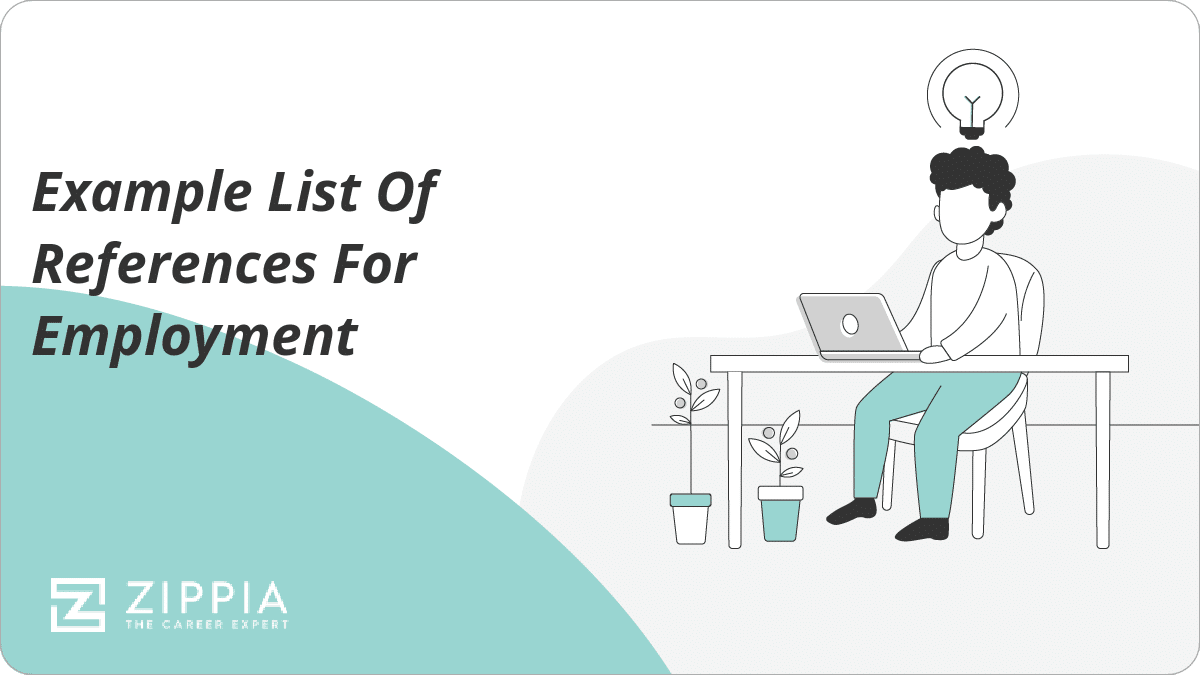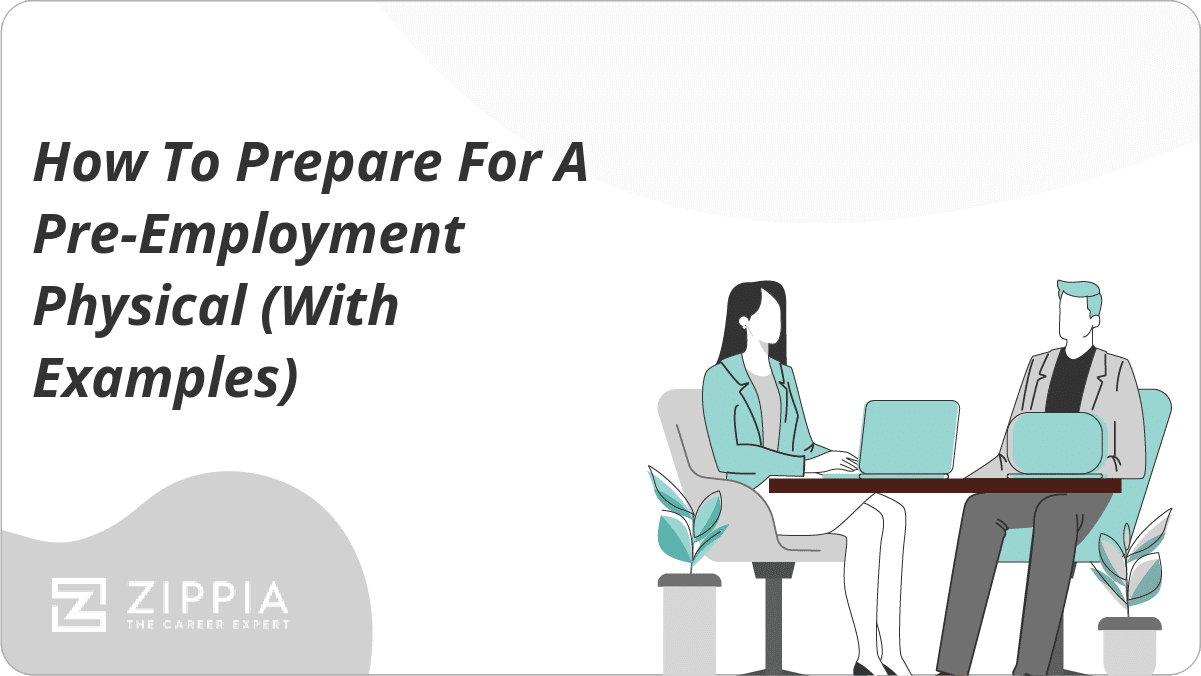- Reference Examples
- Personal Reference Letter
- Recommendation Letter for Employment
- Professional Reference Letter
- Reference Letter Template
- Reference Letter for a Friend
- Professional References
- List Of References
- Recommendation Letter From Employer
- Academic Reference Letter
- Business Reference Letter
- Recommendation Letter for a Promotion
- Character Reference Letter
- Reference From A Manager
Find a Job You Really Want In
Prospective employers will almost always request your reference list. This reference list stands as a crucial resource for hiring managers, aiding them in gaining deeper insights into your suitability for the job. It details the individuals who can vouch for your skills and qualifications.
Today we’ll explore reference lists, how to format them, how to use them, who to ask, and other important things to consider.
Key Takeaways:
-
You will want to include at least three to five references for your potential employer with a maximum of one personal reference.
-
The two types of references are personal and professional.
-
It’s important to ask the person before putting them down as a reference, and you should follow up with a thank you.

Why employers request references
Hiring managers will typically ask for a list of references as part of the initial application process or after a round or two of interviews. Employers need to verify that the claims you’ve made on your resume and in your cover letter are accurate.
A reference can also give real examples of their experience with you, which helps fill in who you are as a job candidate. Sure, you’ll brag about yourself during the interview and in your application documents, but having someone else vouch for your claims carries a lot of weight.
Employers will usually specify how many references they want you to include and what type of information they require about each. Your top priority is to follow all of these instructions perfectly, while also providing a list of high-quality references that can provide a well-rounded picture of you as a professional.
Ultimately, this is a huge help for employers who have to make challenging hiring decisions with many qualified candidates. A good list of references could be the difference between a job offer and being the first runner-up.
Choose From 10+ Customizable Resume templates
Zippia allows you to choose from different easy-to-use resume templates, and provides you with expert advice. Using the templates, you can rest assured that the structure and format of your resume is top notch. Choose a template with the colors, fonts & text sizes that are appropriate for your industry.
Who to ask for a reference
Before you begin calling everyone, take a minute to decide who would be the best individual to endorse you on your list of references. Consider choosing people that will be able to showcase your best and most job-relevant qualities. Politely ask them if they would be willing to help you out in your pursuit to find future employment.
Understand that not everyone would be comfortable giving a reference. Allow them the opportunity to decline and respect their decision. The last thing you would want is to put this person in an awkward position where they feel forced to give a referral they are not comfortable giving.
There are two types of job references: a personal and a professional reference.
-
Professional reference.When a hiring manager asks you to provide a professional reference, they want to consult someone who has previously worked with you. This person will confirm the work you have carried out during your time with the company or corporation.
Be sure to choose individuals that you have worked with during your time in the company or corporation. It should be someone you can attest to your skills and qualifications, not someone you occasionally speak to at the water cooler. Here is a list of people you might want to consider asking to be your reference:
-
Former employers, bosses, or supervisors
-
A coworker or colleague
-
A vendor
-
A former client
-
-
Personal reference. A personal reference is an individual that can speak about your character and what you have to offer. Unlike professional references, hiring managers will get a chance to get to know you better and see who you are as a person. This type of recommendation goes beyond who you are in a professional environment.
While many employers may ask for professional references, a personal reference can give them a better glimpse of your character. This kind of reference is ideal for individuals who don’t have a lot of work experience in a professional setting. He or she will highlight your best attributes and characteristics. For example:
Of course, this means that professional references are given more value than personal ones, as a professional reference can speak directly to your on-the-job skills, qualifications, and professional character traits.
How to format a reference list
Generally, job postings will ask you to include at least three to five references, but that all depends on the company. Aim for five people you believe are in your corner and give you a shining stamp of approval.
-
Document title. The document should have a title that states what the form is.
References For John Smith
-
Contact information. Start by writing down your name, address, and contact information.
Your Name
Your Address
Your Number
Your Email -
References list. Remember to confirm with your contacts that the information you include in your list is up-to-date. Include your contacts information, name, title, the company they work for, phone number, and email address.
Reference Name
Title
Company Name
Company Address
Reference Number
Reference EmailA brief description of your professional relationship
Example of Reference List
References for Melanie Smith Melanie Smith
123 Thompson Dr.
Duluth, MN 55968
763-555-4567
msmith@email.comREFERENCES
Angela Davis
Marketing Manager
Lorimar Cosmetics
321 Jefferson Ave.
Duluth, MN 55968
a.davis@lorimarcosmetics.com
763-555-3214Angela and I worked closely on several projects during my time at Lorimar Cosmetics.
Luna Barnett
Office Manager
Director of Human Resources
Lorimar Cosmetics
321 Jefferson Ave.
Duluth, MN 55968
l.barnett@lorimarcosmetics.com
763-555-6543I trained under Luna’s supervision during my time at human resources for Lorimar Cosmetics.
Mark Weathersbee
Vice President of Sales
Lens Optics
587 MLK Drive
Duluth, MN 55968
mweathersbee@lops.com
763-555-9875Mark was my direct supervisor when I worked as a sales associate at Lens Optics.
Thank your references
While your resume can play a crucial role in helping you land a potential job, having references will go a long way. Other than highlighting your skills, asking someone to be your reference is an excellent way to network. Keeping these connections can enhance your chances of getting hired in the future.
Remember to thank your friends and colleagues for taking the time out of their busy schedules to help you out and offer to do the same for them in the future.
Follow up with your contact. They will be excited to know if and when you get hired, and what you’ll be doing in your future role.
Common reference list mistakes
While a list of references has a fairly straightforward format, there are a few common mistakes to watch out for.
-
Sending your reference list too early. A list of professional references isn’t usually something that you send along with your resume and cover letter. Wait until a later stage in the process, typically after your first or second interview. Of course, follow the instructions of the employer and provide your reference list whenever they request it.
Of course, if the initial application process requests a reference list, provide it then — following instructions is paramount for landing a job.
Additionally, don’t include the phrase “references available upon request” on your resume. It’s incredibly outdated and hiring managers know that you’ll provide references if they request it. Don’t waste valuable resume real estate with this useless phrase.
-
Incomplete reference information. Make sure to include all of the elements we outlined above for every single reference on your list. Remember to keep your formatting consistent as well, so that the order of information is always the same. All of your application documents should exhibit your ability to present information in a clear way.
-
Not giving your references a heads-up. You should definitely get permission from your references before listing them. It’s equally important that you give them a heads-up when you think a call or email from your potential employer is imminent.
For example, if a recruiter asks for your reference list at the end of an interview, let all your references know that a recruiter should be calling or emailing them in the next couple of days. That way, they aren’t caught off-guard because they’ve forgotten what they agreed to.
-
Putting down too many personal references. In a list of 3-5 references, you really should have a maximum of one personal reference. They’re just not as valuable to an employer as professional references because your buddy is obviously willing to write a glowing review of your best traits.
If you do end up using two personal references, try to think of times when they’ve seen you in a more professional setting or worked alongside you on a project. If you can turn the reference from “college friend” to “academic study partner” or “co-volunteer,” their reference immediately becomes more compelling.
-
Not keeping your references informed. In addition to sending them a thank you, you should follow up and let them know the status of your application. Your references will love to hear if you got the job and offer support if you didn’t. Those people want to see you succeed so it’s important to keep them informed.
Submitting References FAQ
-
Should I inform my references in advance before sharing their contact information with potential employers?
Yes, it’s essential to obtain your references’ consent before including their information on your reference list. Reach out to them, explain the job opportunity, and ask for their permission to share their contact details with potential employers. This ensures they are prepared for any inquiries and can provide relevant information when contacted.
-
Is it necessary to tailor my reference list for each job application?
Yes, it’s a good practice to customize your reference list for each job application if possible. Select references who can specifically speak to the skills and qualifications relevant to the job you’re applying for. This helps demonstrate your suitability for the specific role and enhances your chances of success in the hiring process.
- Reference Examples
- Personal Reference Letter
- Recommendation Letter for Employment
- Professional Reference Letter
- Reference Letter Template
- Reference Letter for a Friend
- Professional References
- List Of References
- Recommendation Letter From Employer
- Academic Reference Letter
- Business Reference Letter
- Recommendation Letter for a Promotion
- Character Reference Letter
- Reference From A Manager

















